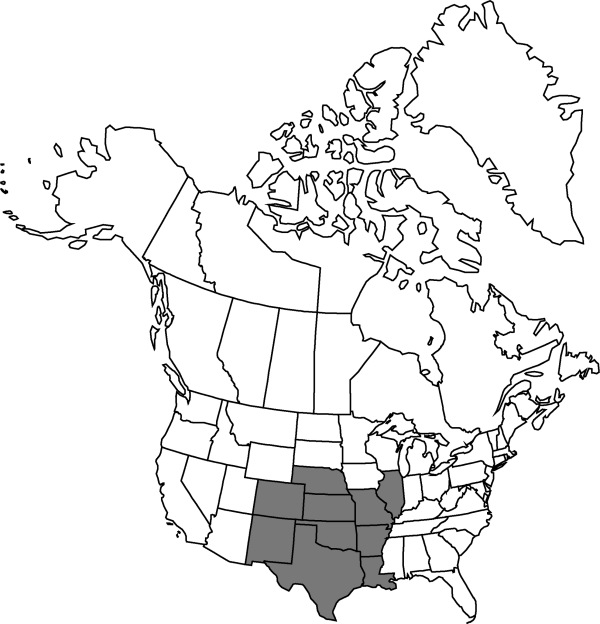Difference between revisions of "Phemeranthus calycinus"
Novon 11: 320. 2001.
Basionym: Talinum calycinum Engelmann in F. A. Wislizenus, Mem. Tour N. Mexico, 88. 1848
Synonyms: Claytonia calycina (Engelmann) Kuntze
FNA>Volume Importer |
FNA>Volume Importer |
||
| Line 7: | Line 7: | ||
|year=2001 | |year=2001 | ||
}} | }} | ||
| − | |basionyms={{Treatment/ID/ | + | |basionyms={{Treatment/ID/Basionym |
|name=Talinum calycinum | |name=Talinum calycinum | ||
|authority=Engelmann | |authority=Engelmann | ||
| + | |publication_title=in F. A. Wislizenus, Mem. Tour N. Mexico, | ||
| + | |publication_place=88. 1848 | ||
}} | }} | ||
|synonyms={{Treatment/ID/Synonym | |synonyms={{Treatment/ID/Synonym | ||
| Line 53: | Line 55: | ||
|publication year=2001 | |publication year=2001 | ||
|special status= | |special status= | ||
| − | |source xml=https://jpend@bitbucket.org/aafc-mbb/fna-data-curation.git/src/ | + | |source xml=https://jpend@bitbucket.org/aafc-mbb/fna-data-curation.git/src/f6b125a955440c0872999024f038d74684f65921/coarse_grained_fna_xml/V4/V4_998.xml |
|genus=Phemeranthus | |genus=Phemeranthus | ||
|species=Phemeranthus calycinus | |species=Phemeranthus calycinus | ||
Revision as of 20:03, 24 September 2019
Plants to 4 dm; roots fleshily woody. Stems ascending or erect, simple or branching. Leaves sessile; blade subterete, to 7 cm. Inflorescences cymose, much overtopping leaves; peduncle scapelike, to 25 cm. Flowers: sepals persistent, ovate to suborbiculate, 4–6 mm; petals pink- to red-purple, obovate, 10–15 mm; stamens 25–45; stigma 1, subcapitate, 3-lobed. Capsules broadly ovoid, 6–7 mm. Seeds without arcuate ridges, 1 mm. 2n = 24, 48.
Phenology: Flowering May–Oct.
Habitat: Rocky or sandy soil, on or near outcrops
Elevation: 100-1200 m
Distribution

Ark., Colo., Ill., Kans., La., Mo., Nebr., N.Mex., Okla., Tex.
Discussion
Some populations of Phemeranthus calycinus are diploid while others are tetraploid, the latter probably the result of autopolyploidy (W. H. Murdy and M. E. B. Carter 2001).
Selected References
None.
Lower Taxa
None.